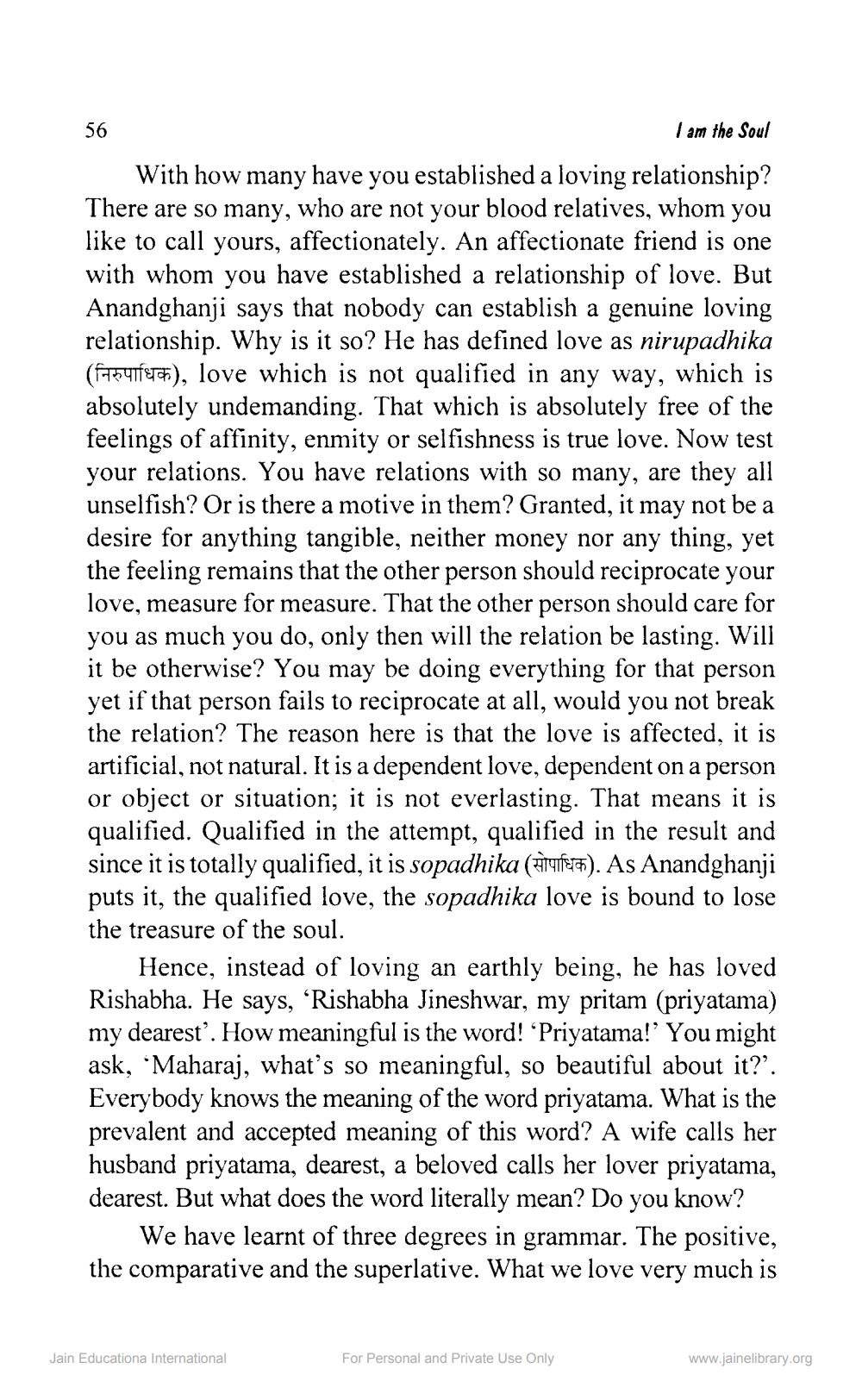________________
56
I am the Soul
With how many have you established a loving relationship? There are so many, who are not your blood relatives, whom you like to call yours, affectionately. An affectionate friend is one with whom you have established a relationship of love. But Anandghanji says that nobody can establish a genuine loving relationship. Why is it so? He has defined love as nirupadhika (FYTTET), love which is not qualified in any way, which is absolutely undemanding. That which is absolutely free of the feelings of affinity, enmity or selfishness is true love. Now test your relations. You have relations with so many, are they all unselfish? Or is there a motive in them? Granted, it may not be a desire for anything tangible, neither money nor any thing, yet the feeling remains that the other person should reciprocate your love, measure for measure. That the other person should care for you as much you do, only then will the relation be lasting. Will it be otherwise? You may be doing everything for that person yet if that person fails to reciprocate at all, would you not break the relation? The reason here is that the love is affected, it is artificial, not natural. It is a dependent love, dependent on a person or object or situation; it is not everlasting. That means it is qualified. Qualified in the attempt, qualified in the result and since it is totally qualified, it is sopadhika (TYTTF). As Anandghanji puts it, the qualified love, the sopadhika love is bound to lose the treasure of the soul.
Hence, instead of loving an earthly being, he has loved Rishabha. He says, “Rishabha Jineshwar, my pritam (priyatama) my dearest'. How meaningful is the word! ‘Priyatama!' You might ask, “Maharaj, what's so meaningful, so beautiful about it?'. Everybody knows the meaning of the word priyatama. What is the prevalent and accepted meaning of this word? A wife calls her husband priyatama, dearest, a beloved calls her lover priyatama, dearest. But what does the word literally mean? Do you know?
We have learnt of three degrees in grammar. The positive, the comparative and the superlative. What we love very much is
Jain Educationa international
For Personal and Private Use Only
www.jainelibrary.org




